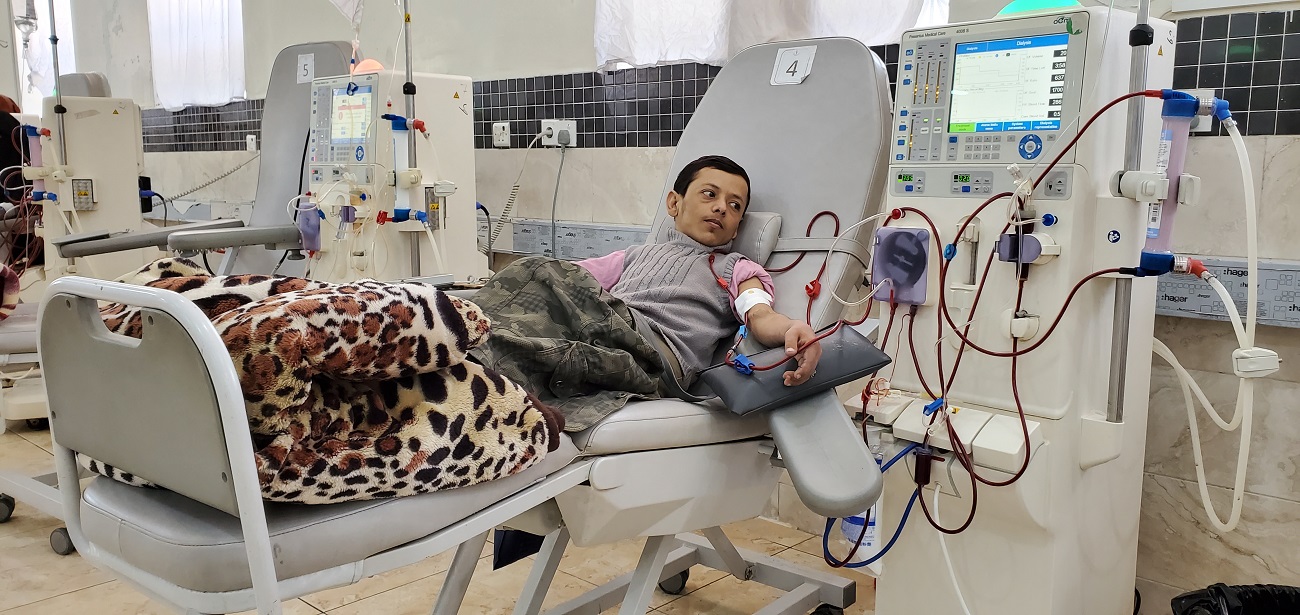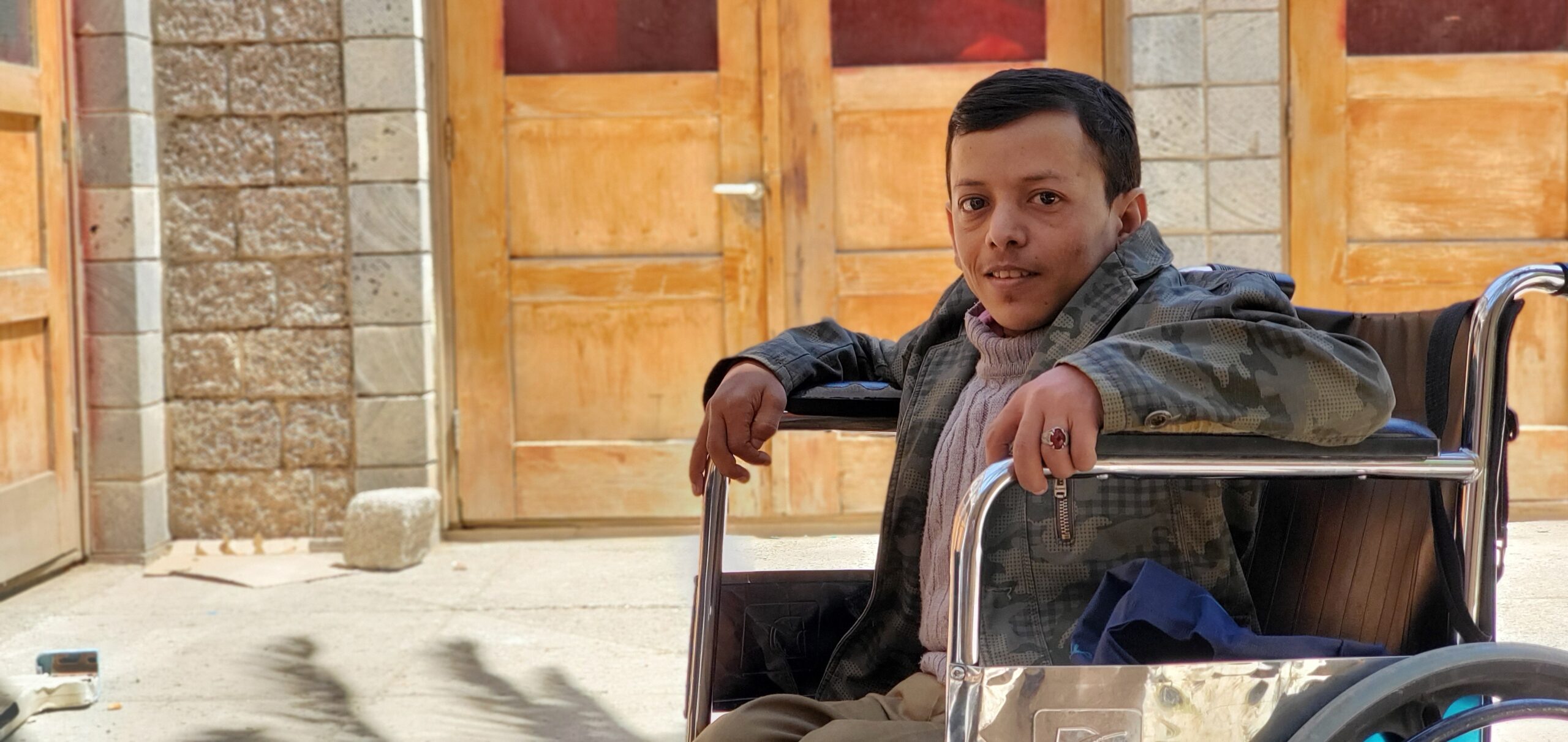Adnan used to have a simple life prior to the war. His father had a job and was the only breadwinner for his family and was able to provide medicine that his son lives on. Adnan used to receive more than one dialysis session weekly and has had to adhere to a costly special dietary regime because of his health condition.
“Our living condition deteriorated more after the war. My father lost his job and couldn’t pay for my treatment and medication. The ongoing fuel crisis has had a negative effect on governmental hospitals which provide treatment to kidney failure patients. This reduced the number of my dialysis sessions,” Adnan states that sometimes he arrives to the hospital and has to wait until the electricity is back to start his session. The burden of renal failure is agonizing, with the shadow of death hovering over patients experiencing renal failure. “I wait for hours to find a bus to take me to the hospital due to the lack of fuel. I wish I had never been born,” says Adnan.
The process of going through dialysis treatment requires a lifestyle overhaul for most patients. Thousands of renal failure patients in Yemen could face a grim fate, if dialysis treatment is not secured. Their survival depends on unfettered access to uninterrupted treatment.
Funded by the European Union and in coordination with the Durable Solutions Consortium, CARE has intervened with unconditional cash transfers to patients who suffer from kidney failure and cancer in Dhamar Governorate. Up to 250 patients (205 kidney failure patients and 45 cancer patients) at the General Dhamar Hospital receive 45,000 Yemeni Riyals (YER) across four phases to help mitigate the hardships they face.
“The money helps me pay for my daily necessities. Receiving it means I can pay for my medication punctually because otherwise it is just too expensive. In addition, it allows me to buy healthy meals that will keep me strong and save me. I can also pay for my transportation to attend my dialysis on time,” says Adnan. He wishes that his health condition gets better. “Thanks to everyone who has supported me. I hope that this project will continue and I also hope that I can go back to school one day,” Adnan concludes.



